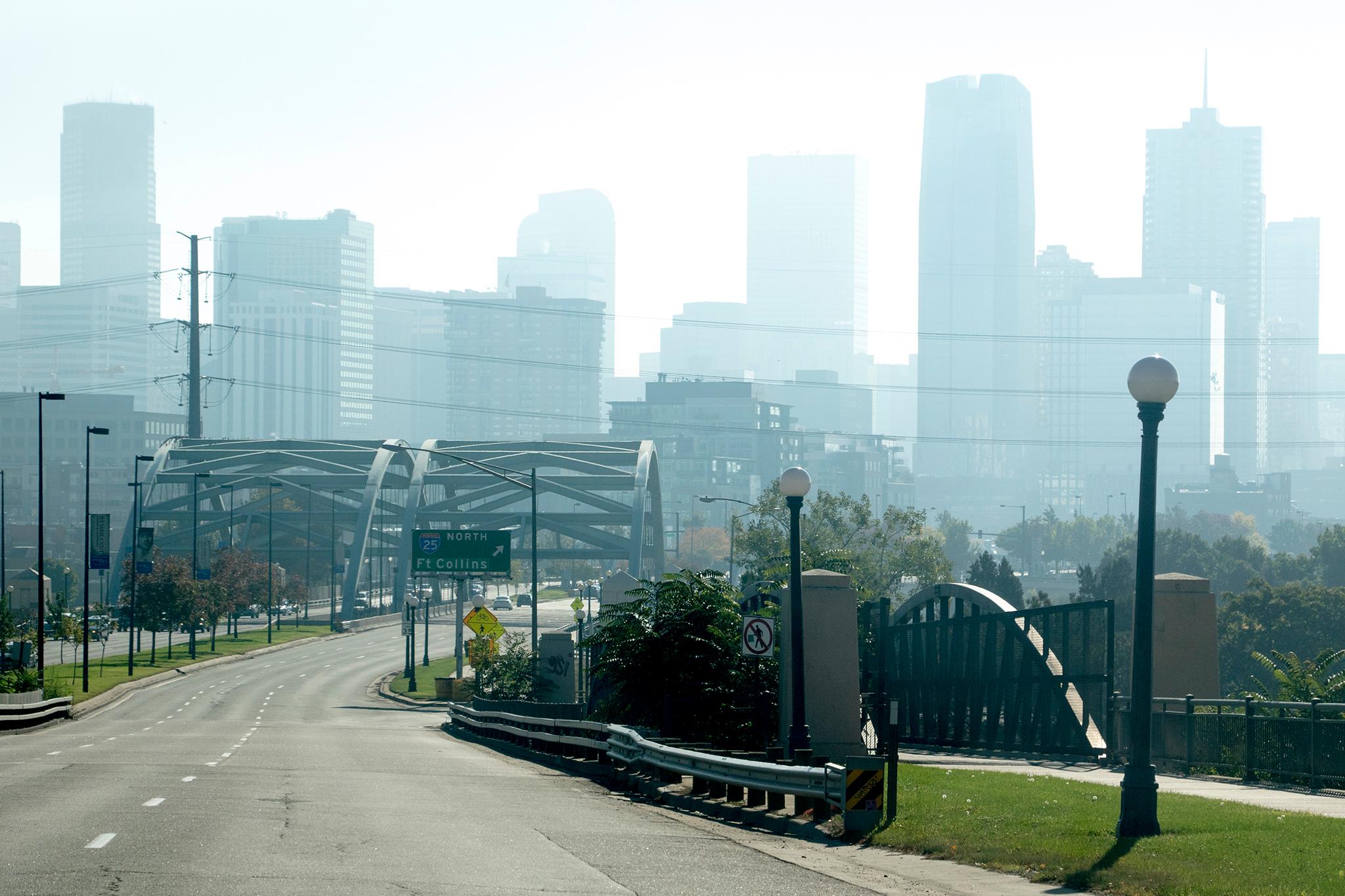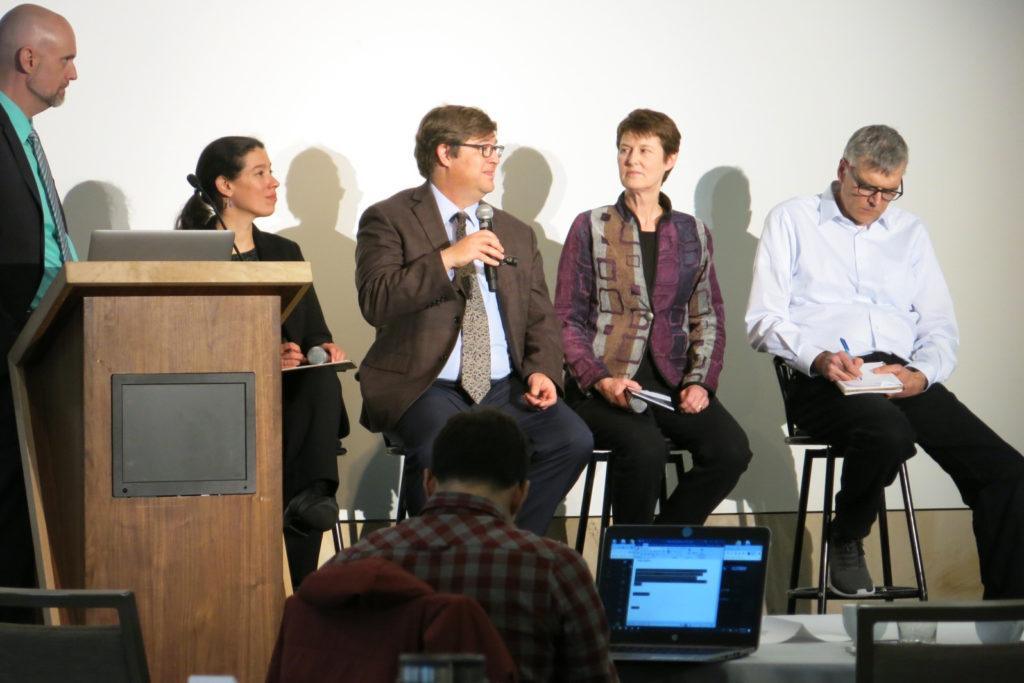
The message from a forum on air quality and climate change Thursday is clear: Colorado needs to do more to accurately measure emissions from oil and gas wells.
That means better technology is needed, state health officials said. And that requires more money, which is a big hurdle.
In December, the U.S. Environmental Protection Agency downgraded the Front Range’s air quality rating to “serious.” CPR News has also found that Colorado’s records of how much methane is in the air contain potentially flawed data.
A lot has been made of compounds released into the air by oil and gas operations that contribute to ozone pollution and health problems. The panel, with state officials, researchers and health professionals, zeroed in on this and also considered how to reduce emissions from cars. Many agreed that the state needs to improve air quality monitoring.

“We can't hide and say it's never been done, or we don't know how to do it,” Gabrielle Petron, a scientist with the Cooperative Institute for Research in Environmental Sciences, said. “We know how to do it.”
Air quality is a priority during this legislative session, said Democratic State Senator Steve Fenberg, who attended the panel.
"We're going to be looking at all kinds of things,” he said. “One is simply making sure we're regulating the right emissions. One is making sure that the fees that are put on emitters are appropriate."
Higher fees would bring in more funding, Fenberg said. So to start, he’s drafting a bill that would bring in more money by raising the cost of air pollution permits.
Some local governments, like those in Boulder County and Broomfield, have already upgraded monitors to improve air quality measurements around oil and gas production.









